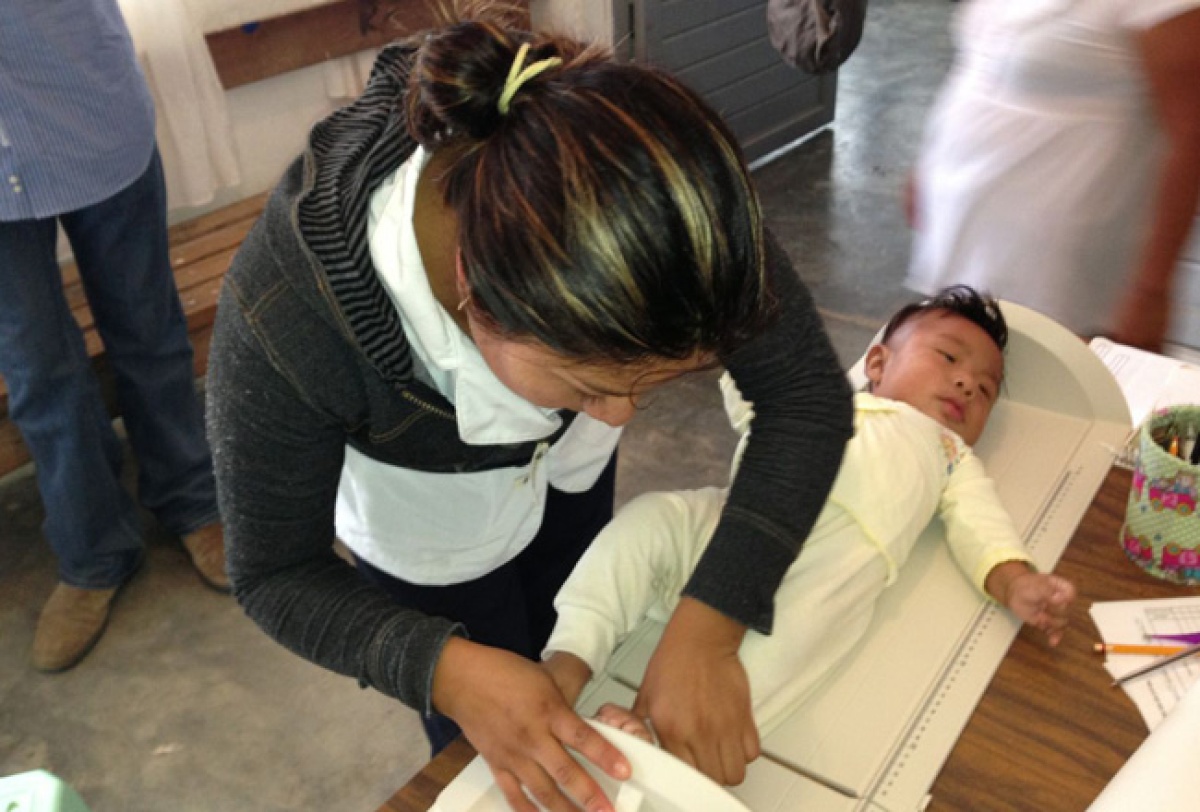Rosa Huet Pale: Nursing Her Community
Posted on May 3, 2013

Rosa Huet Pale goes home only on the weekends. Monday through Friday, the 23-year-old nurse is in Plan de la Libertad, a small, hard-to-reach village in Chiapas, Mexico. Most nights she sleeps in the home of a community member.
“My hometown is about six hours away. Sometimes I only go home twice a month,” she says.
PIH’s Mexican sister organization Compañeros En Salud (CES) began working in Chiapas in 2011 with support from Green Mountain Coffee Roasters. The focus is on bolstering primary care services at understaffed and under-resourced clinics, a mission that leans heavily on the versatility and commitment of nurses like Pale. Nurses embedded in the region are vital to long-term strategies for fighting non-communicable diseases. They’re also expected to be among the first responders to emergencies and complete reams of documentation to track each patient visit.
On any given day, Pale says, she could go from vaccinating kids in the clinic to checking vitals at a patient’s home, to doing a Pap smear and advising on family planning methods.
“Just today we had three home visits, all of them related to maternal and child needs. Very early this morning, the doctor delivered a baby in the home of one of our patients. This morning I measured and weighed the newborn, and later in the afternoon we returned and I administered the first vaccinations,” Pale said. “Next week I will screen the baby’s metabolism …. Home visits get us closer to the life of our patients.”
Nursing in Chiapas, where more than half the population lives below the national poverty line and there aren’t enough doctors to staff every clinic, is difficult. Challenges range from vaccine shortages to making sure clinical waste is properly disposed.
Then there’s the sheer remoteness of villages such as Plan de la Libertad, which is wedged among the peaks of the Sierra Madre de Chiapas—a mountain range that spans from southern Mexico to Honduras. The rugged geography hinders the delivery of care: If a patient of Pale’s needs a complicated procedure, he or she may have to travel hours to reach a hospital, a financial burden that affects the entire family.
“Getting a patient out of the community is difficult and requires coordination and help from the family and the community,” she says. “Sometimes the doctor and I, or at least one of us, will go with the patient to provide assistance along the way.”
For an area that has long been neglected, CES is making steady progress toward integrating primary care services. And while Pale will continue to fret over the countless day-to-day obstacles and make personal sacrifices, she doesn’t lose sight of her larger mission.
“More than anything, what inspired me to become a nurse was the desire to help people,” she says.

